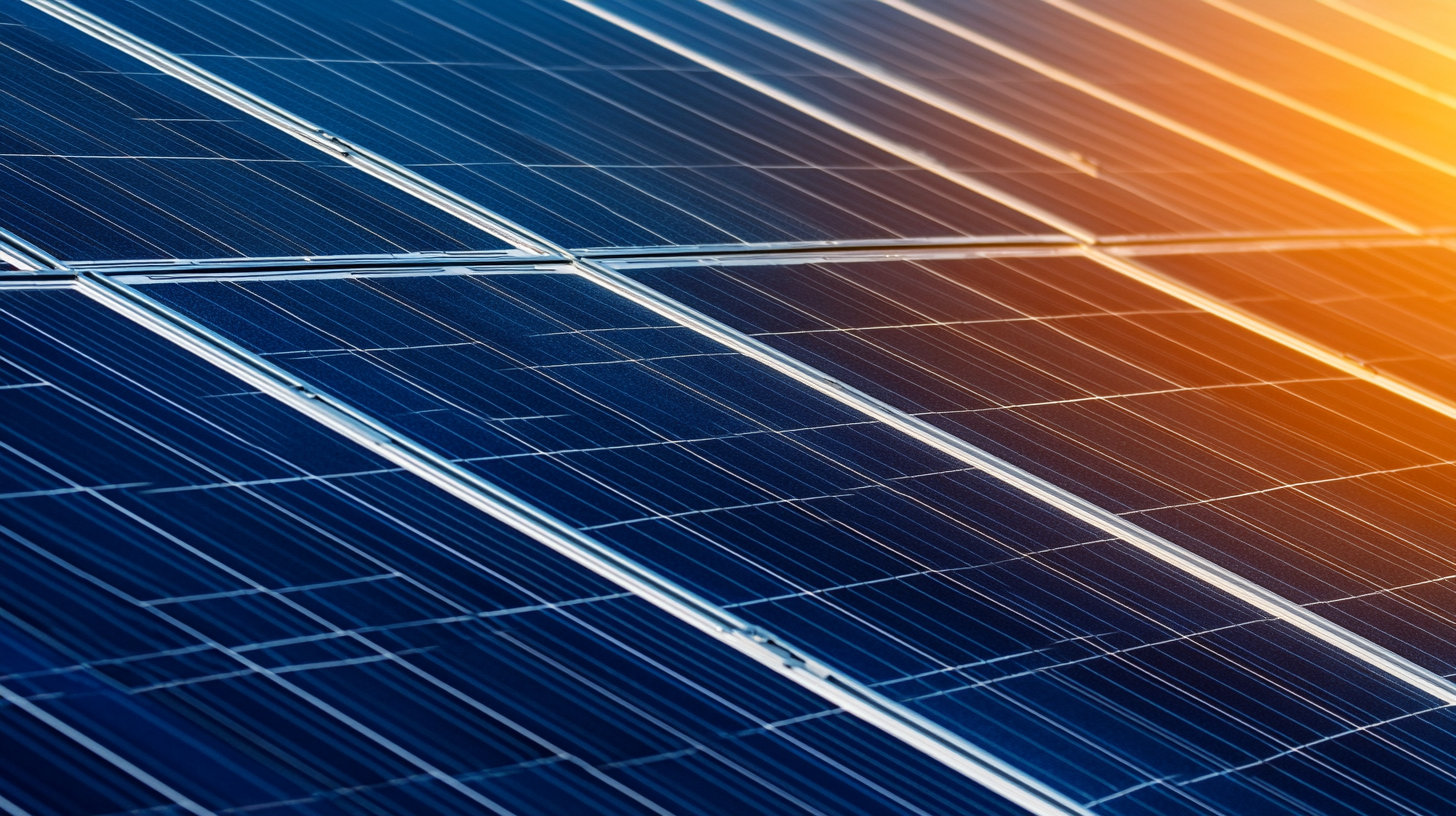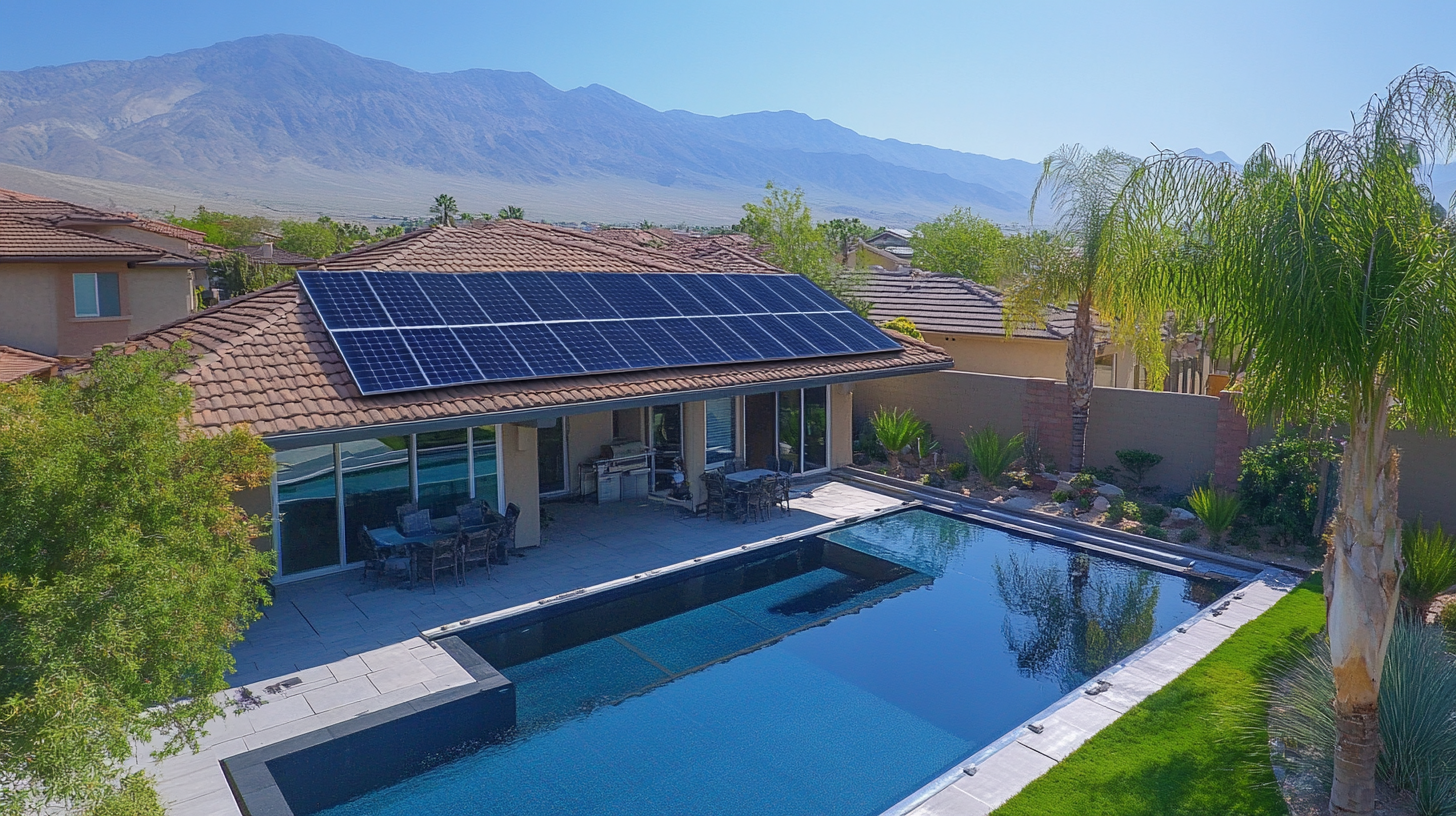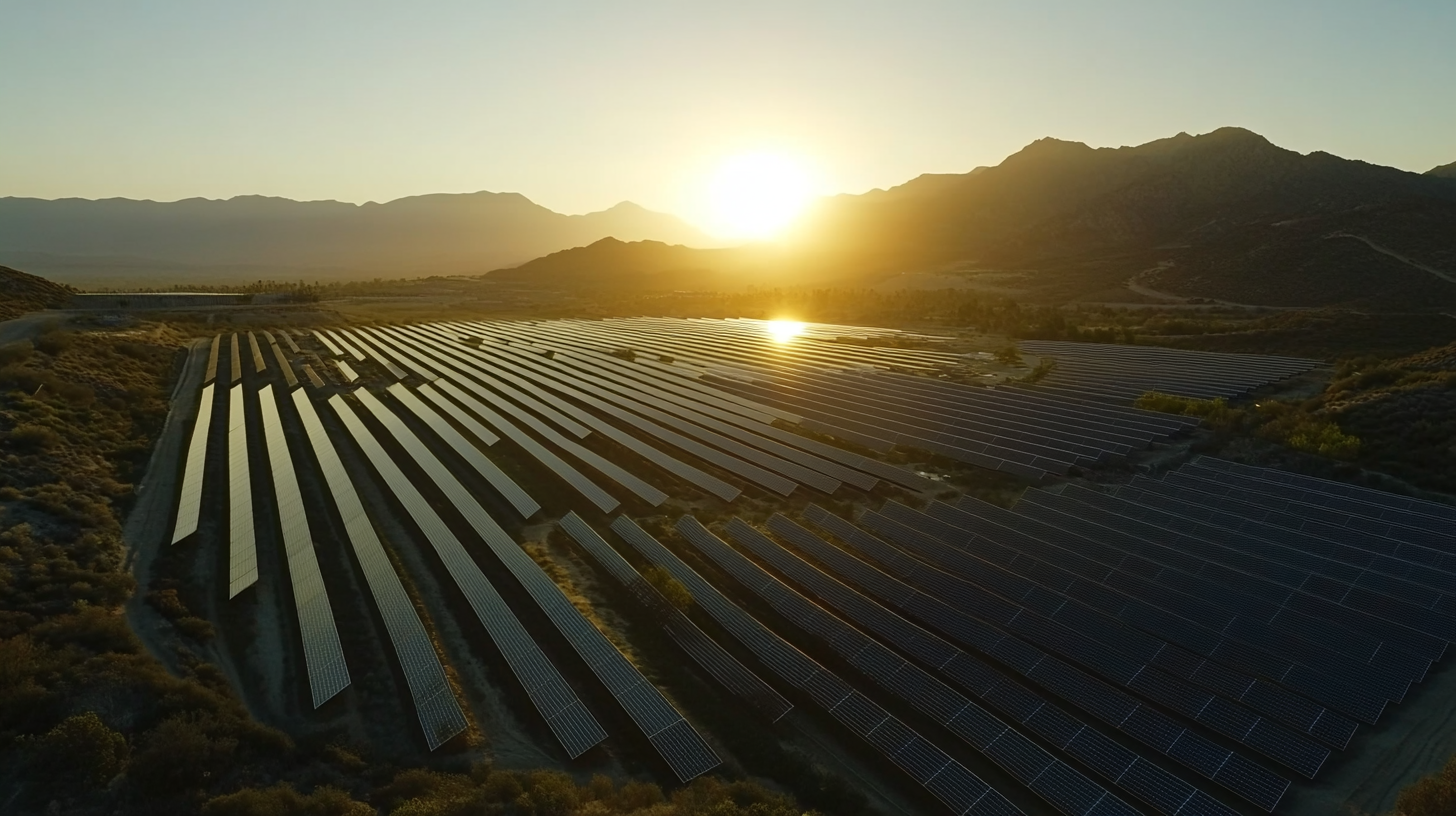Blog
- Home
- Blog
Unlocking Quality Supply: Essential Tips for Sourcing Premium Solar Thermal Panels
Solar Thermal Panels have evolved as a component in the arena of renewable energy. Heating from the sun is realized with the help of this technology. Sourcing quality solar panels today holds a prime place as demand for renewable energy-efficient technologies keeps its increasing trend. All of these certainly make it imperative to find the right products for long-lasting performance and efficiency gains for installation within the homes, businesses, or by the installers. This USA blog will reveal crucial tips that will take you through the sourcing of premium solar thermal panels: compliant with standards and very reliable and efficient at the same time.
With so many manufacturers and suppliers in the market, the whole sourcing process can become a hassle. The different types of solar thermal panels available in the market to understanding the salient features of premium products compared to mediocre ones need one to be well informed and equipped for this journey. This guide will include all the best approaches to ensuring the right assessment of potential suppliers, assessing the performance of an array, and finally helping you make decisions that suit your budget and energy objectives. Enter with us into the realm of solar thermal panels so that you can acquire all the insights and knowledge you need to make quality selections for your energy needs.

Understanding the Different Types of Solar Thermal Panels Available in the Market
Knowing the different types of solar thermal panels when searching the market can be critical to sourcing strategy. The two types of solar thermal panels are flat-plate collectors and evacuated tube collectors. According to the International Energy Agency (IEA), flat-plate collectors are the most common type, providing approximately 75% of the solar thermal market. They are also the most durable and efficient in moderate climates and hence fit for residential applications. In contrast, evacuated tube collectors are increasingly being popular due to their higher efficiency in cold climates. According to Solar Energy Industries Association (SEIA), these collectors will collect perhaps as much as 50% more thermal energy than flat-plates when the weather conditions are less than stellar. They also suit commercial establishments or areas with less consistent sunshine exposure. Apart from these, concentrating solar power systems, solar air heaters, and special types of solar thermal panels come into various other categories. The solar thermal market is projected to have increased significantly, with a global setting of more than 400 GW expected by 2025, according to a recent market analysis by Grand View Research. Understanding these different types of solar thermal panels will be much more important in assessing the best options for your needs.

Key Factors to Consider When Sourcing High-Quality Solar Thermal Panels
Important things must be assessed when sourcing top-end solar thermal panels to ensure maximum investment and performance returns. The first being efficiency, always the most important consideration. Per the International Renewable Energy Agency (IRENA), the efficiency of solar thermal panels, on average, is considered to be in the range of about 30 percent to over 70 percent, depending on the technology that is utilized. Hence, the efficiency is directly related to selecting the level of energy output and overall sustainability of the project.
Another important consideration is the warranty and durability. Reports from within the industry state that high-quality solar thermal panels would generally have warranties for more than 10 to 15 years, denoting their longevity and reliability. The Solar Rating and Certification Corporation (SRCC) states that panels that are manufactured with durable materials will eight possibly resist aggressive climatic conditions and maximize operational performance over their lifetime. Getting the testing certifications for the panels is essential to the guarantee of their survival against various natural impacts.
Further, the country of origin of the solar panels and the reputation of the manufacturer have strong implications in determining quality. NREL data show that established manufacturers with reliable supply chains generally tend to offer superior products and superior after-sales support. Clients dealing with reputable suppliers who are known for advanced manufacturing technology can further ensure that their panels meet or exceed stated criteria. Concentrating on these important considerations can ensure procuring high-quality solar thermal panels that will yield benefits for a long time.

Evaluating Manufacturers: How to Identify Reliable Suppliers for Solar Panels
When sourcing the muscles of solar thermal panels, the first place would be to assess potential manufacturers to avoid unreliable suppliers. Trustworthiness factors weigh highly in ensuring that you get value for your investment; therefore, one must start researching the manufacturer within an industry. This includes looking into consignee-certifications and others, such as ISO or IEC certifications, indicating their resolve towards quality.
The next thing that matters is how experienced the manufacturer is and its reputation. An established company with some years of experience in solar technologies will usually have processes and product lines proven over time. Customer testimony and case studies are invaluable to studying the past performance and reliability of a potential supplier. Never be shy about asking suppliers for references and previous job examples for verifying their credibility.
Another very important thing to check is warranty and support given by the manufacturer for their product. Good suppliers should put in place good warranties that would give protection to their investment. When purchasing, ensure that you ask about their customer service mechanism, as a responsive and knowledgeable support team will go a long way in ensuring a pleasant long journey with the product. By treating these issues as priorities, you will be able to sail through the solar panel market with ease and find a supplier who meets your desired quality standards.

The Importance of Certifications and Standards in Solar Thermal Panel Selection
When it comes to solar thermal panels, however, certifications and standards are of utmost importance. The real meaning of certifications is very critical when it comes to determining quality and reliability so that such buyers make their choices wisely. One of the certifications most people know about in the solar field is the International Organization for Standardization (ISO) and the Solar Rating and Certification Corporation (SRCC), which can improve the credibility of their products as well as provide a safety net for consumers against poorly-manufactured products that fail to meet their expectations on quality and living up to promises made with regard to performance.
While certifications are important, the consideration of the test method for evaluating solar thermal panels is also vital. These are performance indications that the solar thermal panel sample has undergone rigorous third-party testing and should perform as expected throughout its lifetime. Such measurement is particularly crucial in the solar industry because the performance of equipment differs considerably among various manufacturers. So, if the panels you choose comply with industry standards and are duly certified, you will have a better investment decision and long-term satisfaction.
In other words, as sustainability gradually becomes a requirement nowadays, this fact will also apply to the use of certified solar thermal panels in further reduction of the environmental footprint. As it happens, with many certified brands, their products are made using sustainable manufacturing practices and ensure that they align with the global movement toward greener energy solutions. Prioritizing quality certification and standards is enough for the continuation of high-performance panels-and a greener future.
Cost vs. Quality: Finding the Right Balance for Your Solar Thermal Investment
Buying solar thermal panels means weighing cost against quality. A recent report by the Solar Energy Industries Association (SEIA) states that one major area of choice in solar thermal systems is efficiency, which can vary from one manufacturer to the next. While lower initial cost is appealing, studies show that higher-quality panels can provide more thermal efficiency and durability, thereby almost completely influencing an owner's savings and performance in the long run. For instance, certain studies have suggested that solar thermal panels of premium quality could produce 20-30% extra energy output all life compared to standard ones.
Also, the higher the initial investment in solar thermal panels of guaranteed quality, the lower the maintenance costs and the longer the service life. According to NREL, the added investment of 10-15% for the superior panels could be recovered through efficiency and operational savings. Good quality panels will typically be backed with better warranties for the peace of mind over many years of operation, which is important for homeowners and businesses considering renewable energy applications.
Overall, the fact that the initial financial outlay for premium solar thermal panels may be considerably more will serve to underscore other cost-benefit advantages in the long run, including better performance, improved reliability, and reduced maintenance. Adopting a balanced costing and quality strategy will greatly enhance the whole solar thermal investment process.